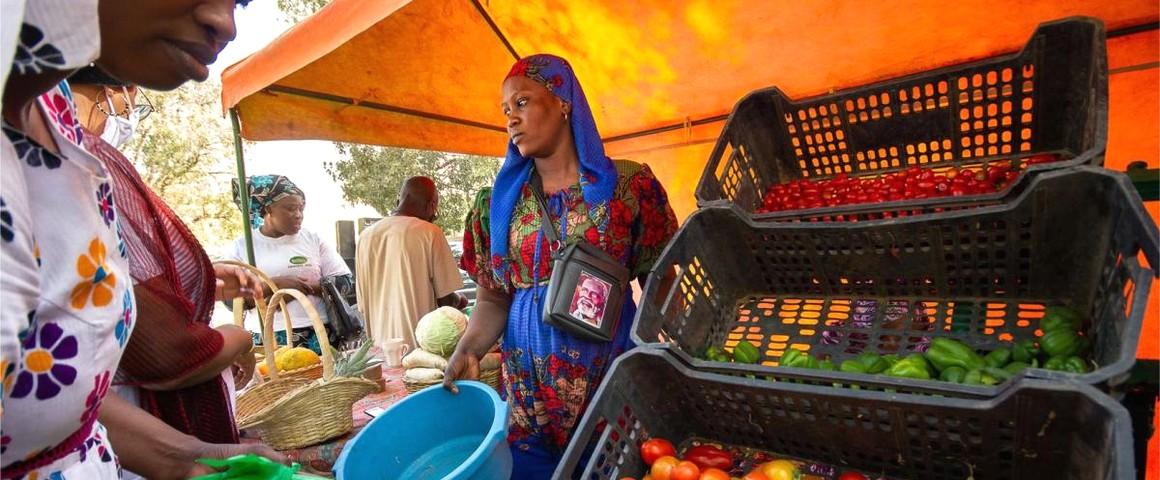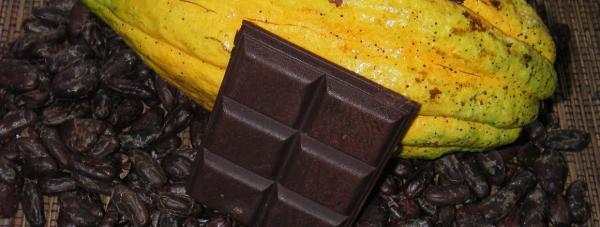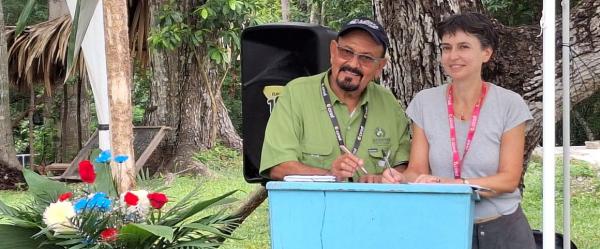Science at work 16 December 2025
- Home
- Press area
- Press releases
- Transforming urban food systems
For the first time, fifteen African cities are working together to transform their food systems

© R. Belmin, CIRAD
Africa is currently undergoing an immense transition, with its urban population experiencing rapid growth. From an estimated 200 million (31% of Africa's total population) in 1990, it rose to 548 million (43%) in 2018 and is projected to reach 1489 million (59%) by 2050. This urbanization trend places cities and their governments at the centre of efforts to address high levels of food insecurity, poverty, and malnutrition.
Over the next four years, AfriFOODlinks aims to connect with, and meaningfully impact, at least 65 cities, establishing a foundation for ongoing collaboration and knowledge sharing between cities in Africa and Europe.
Bringing together more than 26 partners from across Africa and Europe, this four-year project is funded by the European Union and coordinated by ICLEI Africa, in collaboration with eight other partners* including CIRAD.
"The future of Africa is urban, and we need to think critically about how to feed our growing populations. We must look at the whole food value chain and the links between urban and rural", said Professor Anyang' Nyong'o, Governor of Kisumu, in his opening address of this gathering of AfriFOODlinks project members.
"Local government has a key role to play in driving global sustainability", Kobie Brand, Regional Director of ICLEI Africa, stressed. ”Our organization is delighted to be coordinating such an ambitious project, which seeks to empower local governments, their partners, and their citizens by changing the way we do research, make decisions, and resource businesses and infrastructure development."
Shaping sustainable urban food systems
Resourcing and capacity building of city officials and local governments is an essential aspect of transforming urban food systems. AfriFOODlinks will promote inclusive multi-actor governance, equipping public officials with the necessary tools to effectively shape their food systems.
As Paul Currie, Associate Director of Urban Systems at ICLEI Africa, notes, "cities learn best from each other and by incorporating local knowledge into policy development, the project aims to empower both citizens and city officials to take more effective action in their cities".
The project aims to facilitate collaboration and co-learning among cities, recognizing that there is no one-size-fits-all solution to address challenges faced by urban food systems. By sharing knowledge and developing contextually relevant solutions, AfriFOODlinks seeks to enhance the resilience of food systems and improve access to nourishing foods.
As part of its efforts, AfriFOODlinks is curating a crowd-sourced centralized knowledge repository for key resources about urban food systems.
Supporting small businesses and youth
The Kisumu meeting also saw delegates commit to a bold plan of action which included support to small businesses and youth. Under this plan of action, cities and their partners will accelerate the growth of innovative, women- and youth-led agrifood businesses; and launch a youth ambassadors programme which will equip youth ambassadors from project cities to take action and connect them with city decision makers.
Urban food systems need bold transformation. AfriFOODlinks is creatively unlocking this transition and will be driving change in more than 65 cities.
Of those cities, five will be in Europe - Bruges (Belgium), Lisbon (Portugal), Milan (Italy), Montpellier (France) and one other - in addition to the 15 African cities, five of which will be testing changes: Cape Town (South Africa), Kisumu (Kenya), Mbale (Uganda), Ouagadougou (Burkina Faso) and Tunis (Tunisia) .
AfriFOODlinks is groundbreaking in that it has received one of the largest Horizon Europe grants awarded to a consortium led by African institutions. This African leadership of African research marks an important milestone in Africa's knowledge sovereignty.
The project will be presented by its coordinating organization, ICLEI Africa, at a side event to the UN Food Systems Summit +2 Stocktaking Moment, from 18:00 to 19:00 CEST on Monday 24 July. Register here



























